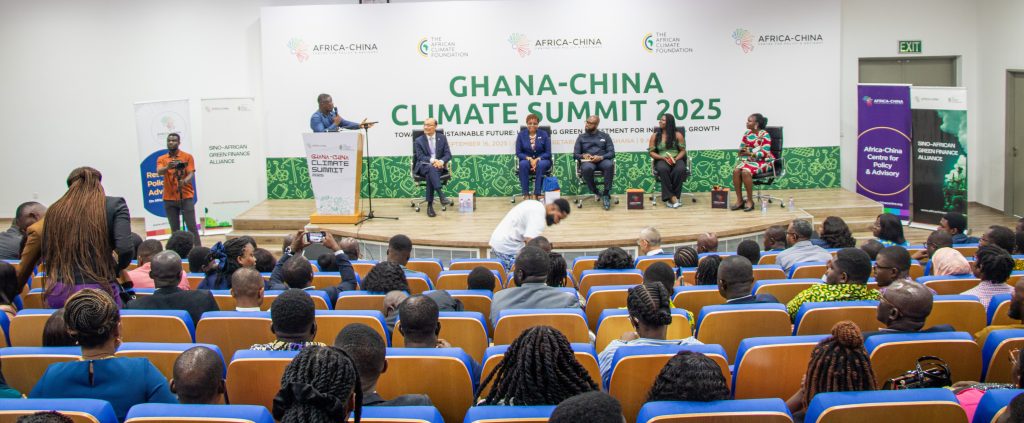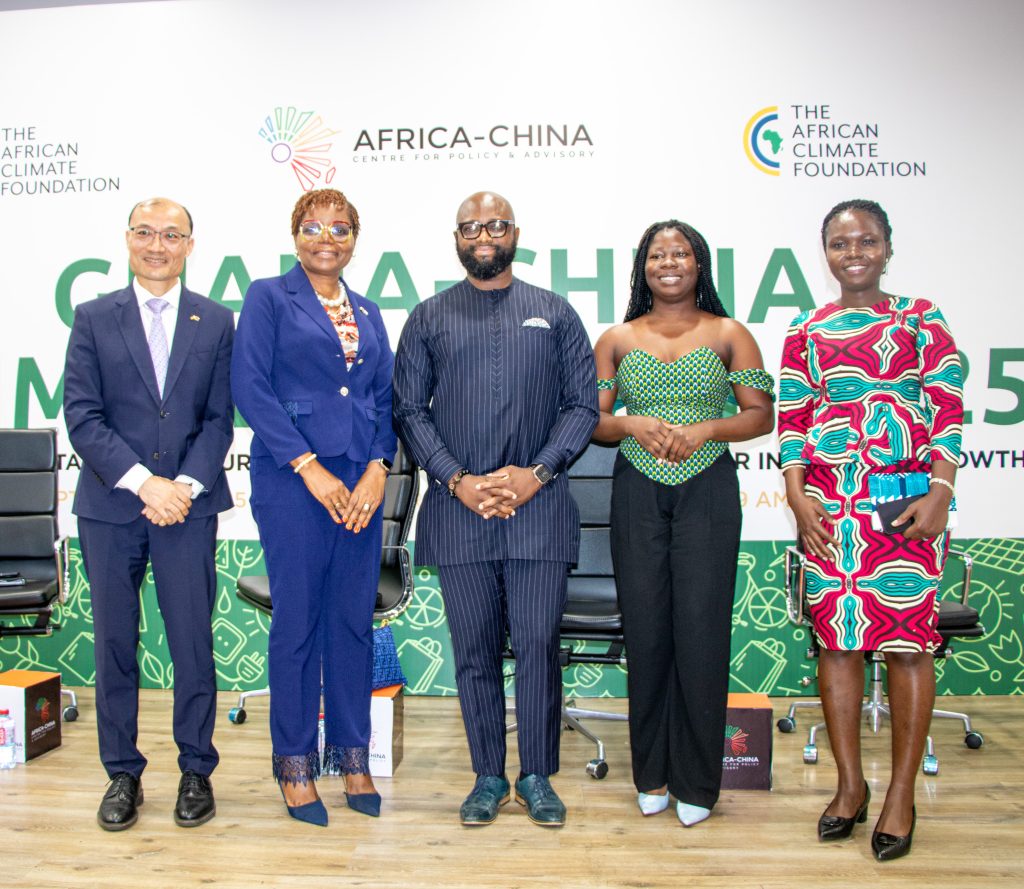
Students and faculty members of the Department of Developemnt and Environmental studies of Wisconsin International University College, Ghana joined other participants at the inaugural Ghana-China Climate Summit 2025 held at the Africa Continental Free Trade Area (AfCFTA) Secretariat in Accra. The event marked a significant milestone in Ghana-China collaboration on climate action, bringing together policymakers, financiers, academics, and youth to chart actionable pathways for environmental protection.
The summit, organised by the Africa-China Centre for Policy & Advisory with support from the African Climate Foundation and Sino Africa, focused on strengthening partnerships for climate finance and resilience in Ghana.
In his welcome address, Executive Director of the Africa-China Centre for Policy and Advisory (ACCPA), Mr. Paul Frimpong, called on participants to engage actively by sharing expert opinions and raising critical questions on sustainability.
In his address, H.E. Tong Defa, the Chinese Ambassador to Ghana, reaffirmed Beijing’s commitment to supporting Africa’s green transition. He highlighted China’s climate financing efforts through the South-South Cooperation Fund for Climate Change (US$3 billion) and the Global Development and South-South Cooperation Fund (US$4 billion). The Ambassador also called on developed countries to honour their US$100 billion climate finance commitments, while showcasing China’s progress in clean energy, noting that “over 40 percent of cars in major Chinese cities now run on electricity.”


Head of Climate & Sustainability Office, Bank of Ghana, Mrs Allswell Abankwa stressed that climate change is an emerging risk to Ghana’s financial stability, citing vulnerabilities in the banking sector. She outlined initiatives by the Bank of Ghana, such as the Sustainable Banking Principles (2019) and the Climate-Related Financial Risk Directive (2024). Compliance among banks, she noted, has risen from 42% in 2021 to over 73% in 2025. She urged stronger collaboration with Chinese financial institutions in supporting solar energy, electric mobility, and concessional loans for green startups.
Executive Director, CEIBS Africa Prof. Gordon Kwesi Adomdza emphasised that climate finance should be viewed as a “catalyst for innovation,” encouraging entrepreneurs to explore opportunities in solar-powered irrigation, afforestation linked to carbon markets, and other climate-smart ventures.

Ms Mabel Laryea, Project Coordinator, Green Africa Youth Organisation, called for inclusive financing mechanisms for young innovators. She highlighted the creativity of Ghanaian youth in transforming waste into sustainable products but lamented the barriers they face in accessing funds. She proposed a dedicated Ghana Climate Fund for youth innovators, as well as knowledge exchange programs with China to build capacity in renewable energy and green jobs.
The Ghana-China Climate Summit 2025 ended with a collective call for shared responsibility, innovative financing, and stronger youth involvement in the climate agenda.
Diverse stakeholders, including financial institutions, universities, and climate advocacy groups, attended the summit. Wisconsin International University College, Ghana, proudly participated in this landmark event, reaffirming its dedication to climate action, sustainability, and youth empowerment.


